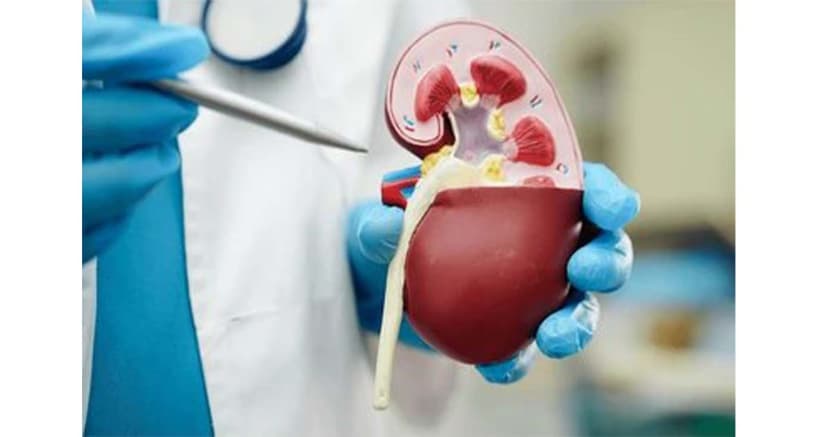From Meat to Greens: The Surging Popularity of Plant-Based Diets and How to Embrace the Change
By:

Apex Hospitals
13-01-2024 5 Min Read

The Rise of Plant-Based Diets
In recent years, plant-based diets have significantly increased in popularity. More and more people are recognizing the numerous benefits of adopting a plant-based lifestyle for their health and the environment. A plant-based diet primarily focuses on consuming foods derived from plants, such as fruits, vegetables, whole grains, legumes, and nuts, while minimizing or eliminating the consumption of animal products. Various factors, including health concerns, ethical considerations, and environmental consciousness, drive this shift in dietary choices.
Benefits of a Plant-Based Diet
One of the main reasons plant-based diets are gaining traction is their numerous health benefits. Research has shown that people who follow a plant-based diet tend to have lower risks of developing chronic diseases such as heart disease, high blood pressure, diabetes, and certain types of cancer. Plant-based diets are typically low in saturated fats and cholesterol while rich in fibre, antioxidants, vitamins, and minerals. These nutrient-dense foods can help improve overall health and increase longevity.
Furthermore, a plant-based diet can also contribute to weight management and loss. Plant-based foods are generally lower in calories than animal products, making achieving and maintaining a healthy weight easier. They are also typically higher in fibre, which promotes a feeling of fullness and helps control appetite. Additionally, plant-based diets have been associated with improved digestion and gut health, as the abundance of fibre helps regulate bowel movements and supports the growth of beneficial gut bacteria.
Challenges of Transitioning to a Plant-Based Diet
While the benefits of a plant-based diet are clear, transitioning from a diet that includes animal products to an entirely plant-based one can pose some challenges. One of the main concerns for individuals considering this transition is ensuring adequate protein intake. However, contrary to popular belief, plenty of vegan protein sources are available. Legumes such as lentils, chickpeas, and black beans are excellent protein sources, as are tofu, tempeh, and seitan. Nuts and seeds, such as almonds, chia, and hemp seeds, also provide protein while offering additional nutritional benefits.
Another challenge of transitioning to a plant-based diet is the potential for nutrient deficiencies. It is essential to ensure adequate intake of nutrients such as iron, calcium, vitamin D, and vitamin B12, often found in higher amounts in animal products. However, with proper planning and a varied diet, plant-based sources can meet these nutrient needs. For example, leafy green vegetables like kale and spinach are rich in iron, while fortified plant-based milk and tofu can provide calcium. Vitamin B12, primarily found in animal products, can be obtained through fortified foods or supplements.
Vegan Sources of Protein
Protein is an essential macronutrient that plays a crucial role in various bodily functions, including muscle growth, repair, and maintenance. Many people believe that animal-based products are the only reliable source of protein, but numerous vegan protein sources can meet daily requirements.
- Legumes, such as lentils, chickpeas, and black beans, are rich in protein, fibre, and other beneficial nutrients.
- Tofu made from soybeans is a versatile plant-based protein source that can be used in various recipes.
- Nuts and seeds are another excellent source of protein in a vegan diet. Almonds, walnuts, and cashews are high in protein and provide healthy fats and other essential nutrients.
- Chia seeds, hemp seeds, and flaxseeds are protein-rich options that can be easily incorporated into meals or used as toppings.
- Additionally, whole grains such as quinoa, brown rice, and oats contain a decent amount of protein, making them valuable additions to a plant-based diet.
Incorporating Plant-Based Foods into Your Diet
Transitioning to a plant-based diet can be a gradual process, and finding a balance that works for you is important. Start by incorporating more plant-based foods into your meals and gradually reducing your consumption of animal products. Experiment with different recipes and Flavors to make the transition enjoyable and sustainable. Try replacing meat with plant-based proteins like tofu or tempeh in your favourite stir-fries, or opt for a hearty lentil or chickpea curry instead of a meat-based dish.
Increasing your intake of fruits and vegetables is also crucial when embracing a plant-based lifestyle. Aim to include a variety of colourful fruits and vegetables in your meals to ensure a wide range of nutrients. Experiment with different cooking methods, such as roasting or grilling, to enhance the Flavors and textures of plant-based foods. Consider using spices and herbs to add depth and complexity to your dishes. Gradually reducing your reliance on processed foods and incorporating more whole, unprocessed plant-based foods will improve your health and expand your culinary horizons.
Tips for Embracing a Plant-Based Lifestyle
Embracing a plant-based lifestyle can be a transformative and rewarding experience. Here are some tips to help you:
1. Educate yourself: Learn about the benefits of a plant-based diet and the various plant-based protein sources available. Understanding the nutritional value of different foods will help you make informed choices.
2. Plan your meals: Take some time to plan your meals and snacks. This will help you ensure that you get various nutrients and prevent you from relying on convenience foods.
3. Experiment with flavours: Don't be afraid to try new flavours and experiment with different spices and herbs. Plant-based foods can be incredibly versatile and offer various flavours and textures.
4. Find support: Connect with like-minded individuals also transitioning to a plant-based lifestyle. Share recipes, tips, and challenges with one another to stay motivated and inspired.
5. Be patient with yourself: Transitioning to a plant-based diet is a journey, and making mistakes or setbacks is normal. Be kind to yourself, and remember that every effort counts.
Plant-Based Diet Myths and Misconceptions
Despite the growing popularity of plant-based diets, there are still some myths and misconceptions surrounding this way of eating.
1. One common misconception is that plant-based diets lack sufficient protein. As mentioned earlier, plenty of vegan protein sources are available, and meeting protein requirements is entirely possible on a plant-based diet. Legumes, tofu, tempeh, nuts, and seeds are all excellent protein sources.
2. Another myth is that plant-based diets are nutritionally deficient. While it is important to ensure adequate intake of certain nutrients, such as iron, calcium, vitamin D, and vitamin B12, with proper planning and a varied diet, these needs can be met through plant-based sources or supplements. Additionally, plant-based diets can be nutritionally superior to diets that include animal products because they are typically higher in fibre, vitamins, and minerals.
Plant-Based Diet and the Environment
In addition to the health benefits, a plant-based diet can positively impact the environment. Animal agriculture significantly contributes to greenhouse gas emissions, deforestation, and water pollution. By reducing or eliminating the consumption of animal products, individuals can reduce their carbon footprint and help combat climate change. Plant-based diets require fewer resources, such as land, water, and energy, making them more sustainable and environmentally friendly.
Furthermore, plant-based diets can help conserve biodiversity and protect ecosystems. The production of animal products often involves clearing vast areas of land for livestock grazing or growing animal feed crops. This destruction of natural habitats can devastate wildlife populations and contribute to biodiversity loss. By choosing plant-based foods, individuals can contribute to preserving ecosystems and protecting endangered species.
Conclusion
The popularity of plant-based diets is a testament to the growing awareness of their benefits, both for individuals and the planet. By embracing a plant-based lifestyle, you can improve your health, reduce your environmental impact, and contribute to a more sustainable future. While transitioning to a plant-based diet may pose some challenges, the abundance of vegan sources of protein and nutrients makes it entirely feasible. With proper planning, education, and support, you can successfully embrace the change and enjoy a vibrant and fulfilling plant-based lifestyle.
Ready to make the switch? Start your journey towards a plant-based lifestyle today with the help of our experienced dieticians and experience the countless benefits it offers. Your health and the planet will thank you.
FAQS
Related Articles
Connect With Us
Health In A Snap, Just One App.
KNOW MORE



































































































